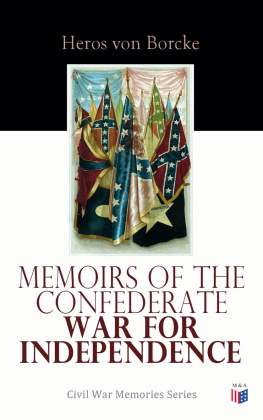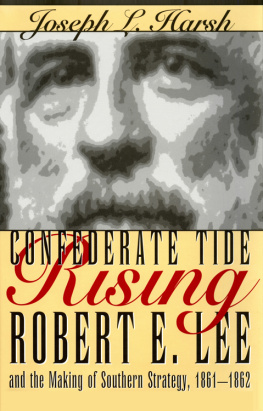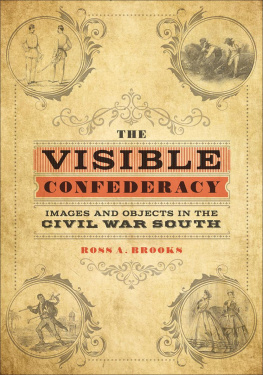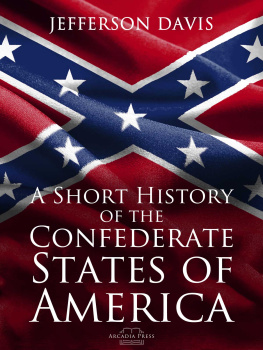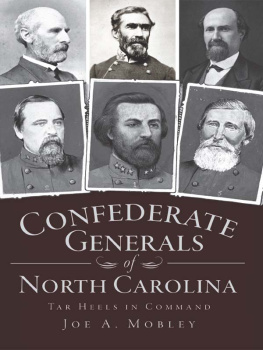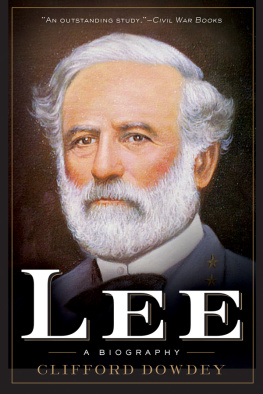PREFACE
The kind interest with which the public received the Memoirs as they appeared in ' Black-wood's Magazine' induced me to think of re-publishing them. When they were on the point of republication, the news reached me that my King had called his people to arms against Austria and her allies. I offered at once my sword to my native country, and had the proud satisfaction of fighting, in the army of Prince Frederick Charles, in the great battle of Konigsgraetz, and of taking part in the victorious advance through Bohemia, Moravia, and the Duchy of Austria. A new great war has turned the interest of the public to new matters, many months have passed away since the termination of the great American struggle, and many may have forgotten that the splendid Army of Virginia was ever in existence; but I do not hesitate to publish my account of battles lost and won, trusting that there are many still left who will read with some inter est the simple narrative of a soldier who is proud to have shared the sufferings and the glory of the unfortunate people of the late Confederacy.
HEROS VON BORCKE,
OF THE 3D PRUSSIAN DRAGOONS.
PRUSSIA, October 25, 1866.
CHAPTER I
On the 29th day of April 1862, I embarked at Queenstown on board the fine new steamer Hero, a vessel which had been built for running the blockade into the ports of the Confederate States of America, and was soon upon the bright waters of the Channel, bound for the theatre of war in the New World. Several most agreeable companions shared with me the accommodations of the steamer, and with smooth seas and pleasant skies we made a delightful voyage of twenty days to Nassau, unattended by any other than the ordinary incidents of the ocean transit. Off the Spanish coast we skirted a heavy gale; but as we proceeded from high to low latitudes the weather became every day more and more charming, until we ran upon an even keel into the blue phosphorescent seas that lave the coral reefs of the Bahamas. Here we met with an interruption which seemed likely for a time to terminate my American adventures, if I may be allowed the Hibernicism, before they had begun. As we were nearing the island of New Providence, within sight of the island of Abaco, a steamer appeared on our quarter bearing towards us under English colors. The captain of the Hero, apprehending no trouble from a vessel which he mistook for the regular English mail-packet, kept on his course, though it would have been an easy matter to escape the pursuit of the stranger had he supposed her intentions were unfriendly. As we came within range, a light puff of smoke from 'the stranger's side, and the whiz of a shell through the air a little astern of us, made it clear enough that the purpose was to board the Hero; and accordingly our engines were immediately stopped, and there speedily danced alongside a small boat, from which three Federal officers ascended to our decks. The steamer proved to be the U.S. gunboat Mercedita, and her commander, not doubting for a moment that he had made a valuable capture, had sent off a boat's crew to take possession of his prize. Whether the officers who represented him were annoyed at discovering that the Hero was not as yet liable to capture, or whether incivility was habitual to them, it is certain that they behaved towards us with a degree of rudeness such as I have rarely witnessed. After a detention of five hours, however, we were permitted to continue our course; the Federal officers rowed back to the Mercedita, and we had the satisfaction of seeing that vigilant cruiser soon become a mere speck on the evening horizon.
I was the more disturbed by this most unwelcome visitation, because it deprived me of many valuable papers and MSS., letters of introduction, and the like, which, fearing they might be seized and read by our visitors, I burned upon their approach.
A few hours later the island of Abaco appeared plainly in view, and with the rich sunset we ran past the islets of coral, each tufted with tropical vegeta tion, which mark the entrance of the harbor of Nassau. The cargo of the Hero consisting in great part of powder, we were compelled, in accordance with the regulations of the port, to lie-to five miles off shore; but the vessel having been signalled, a boat was soon sent to us, from which stepped aboard a young English midshipman who could not have been more than fourteen years of age, but who seemed fully conscious of the importance wherewith he was clothed by her Majesty's uniform. This beardless officer, having taken a look at the ship's papers and a glass of grog with becoming dignity, returned to Nassau, leaving us ill content to remain all night in the steamer, from which we saw the sparkling lights of the city and caught the delicious perfume wafted seaward from the island. At six o'clock next morning we found the ship surrounded by barges filled with negroes, who clamoured loudly for the privilege of taking us ashore. We had some difficulty in conducting negotiations from the ship's side amid the horrible din that assailed our ears, but we at last succeeded in securing a boat with six dusky oarsmen, two or three of them Africans by birth, who pulled us to the landing in two and a half hours. The sun poured down upon the sea with almost intolerable fervour, but there was refreshment in looking into the cool blue water, which was so marvellously clear that we could easily distinguish the pebbles strewn upon the bottom at the depth of forty feet.
New Providence is the smallest of the Bahamas, belonging to the West Indian Archipelago, and contains about 13,000 inhabitants, of whom two-thirds are free negroes, under the colonial government of Great Britain. Nassau, its only port, was a gay enough little place at the time of my visit, though, doubtless, with the discontinuance of its trade with the Southern ports, through the Federal blockade, it has subsided into its normal quietude; the busy population that was then seen upon its wharves has most probably disappeared, and the buzz of animated conversation is heard no more on summer evenings along the verandahs of the Royal Victoria Hotel. This large and comfortable establishment occupies the highest point of the island, and looks down upon the town, which stretches away to the right and left, terraced from the sea in regular gradations of ascent. What strikes one most forcibly in the external appearance of Nassau are the violent contrasts it presents to the eye. Nothing is subdued. The white Spanish houses absolutely glister in the overpowering glare of the sun. The roofs are as white as if they were covered with snow, being constructed, like the walls, of the coral formation of the island. The streets and roadways are dazzlingly white, and an impalpable dust rises in white clouds from every passing vehicle. The men are dressed in white from top to toe white muslin turbans around their straw hats, and their feet encased in white canvass shoes, like those worn by the boating crews of the Thames rowing-clubs. Such are the lights of the picture. The shadows are supplied by the dark foliage of the orange and banana trees, the dense shade of the laurel thickets, and the intense black of the faces of the negroes. Black waiters at the hotel, black shopkeepers in the town, black soldiers on guard, black belles on the promenade the effect was striking against the whiteness of the buildings and the thoroughfares. The "irrepressible negro" asserts himself immensely at Nassau. He seeks, and not altogether in vain, to unite the greatest possible amount of consequence with the least possible amount of work. But the negro women amused me most of any. In all their native hideousness of form and feature, they bedizen their persons with European costumes, of every fashion, fabric, and colour, and walk the streets with a solemn dignity that even a Spanish hidalgo might envy.



